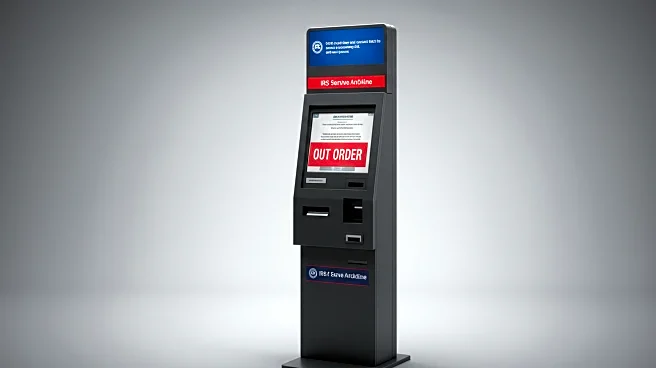What's Happening?
The IRS has decided to discontinue its self-help kiosks after spending $500,000 annually on maintenance contracts that failed to keep them operational. An inspector general report revealed that 40 out of 100 kiosks were non-functional, with maintenance tickets often taking over a year to resolve. The kiosks, intended to assist taxpayers with tax-related issues, were plagued by management inefficiencies rather than technical faults. Despite taxpayer satisfaction when operational, the IRS concluded that the aging equipment no longer met service expectations.
Why It's Important?
The decision to scrap the kiosks highlights challenges in government procurement and oversight, raising concerns about wasteful spending. While the financial impact is relatively small, it underscores broader issues in managing taxpayer funds effectively. The situation reflects the need for improved accountability and efficiency in government contracts, which could prevent similar occurrences in other programs. The IRS's move to explore alternative self-service tools may lead to more effective solutions for taxpayer assistance, enhancing service delivery and public trust.
What's Next?
The IRS plans to search for new self-service tools to replace the kiosks, potentially improving taxpayer assistance services. The inspector general has urged the IRS to reconsider the decision, suggesting that functional kiosks could benefit taxpayers. The agency's response to the audit may influence future procurement strategies and contract management practices, aiming to prevent similar issues. Stakeholders, including government watchdogs and taxpayer advocacy groups, may continue to monitor the IRS's efforts to enhance service delivery.










